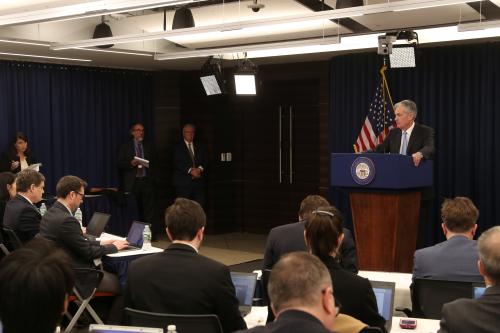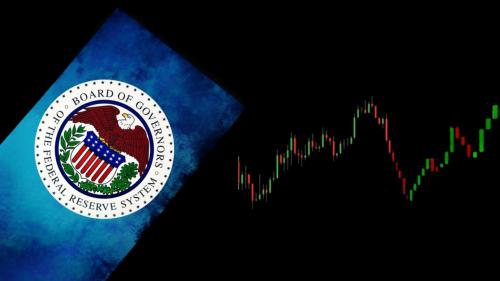The biannual meetings of the Strategic Economic Dialogue between China and the U.S. are taking place in Beijing against the backdrop of the worldwide financial and economic crisis. Even as the two countries are reeling from economic carnage, the old thorn in their bilateral relationship—Chinese currency policy—is back at center stage.
The steady but languorous appreciation of the renminbi has ground to a complete halt and even reversed slightly in recent days. This prompted U.S. Treasury Secretary Hank Paulson to call for a stronger renminbi, arguing that it was necessary to correct global imbalances. Beijing promptly rebuffed his call, responding that the focus on the Chinese currency was misplaced and counterproductive, especially in the midst of a crisis.
Plus ça change, plus c’est la même chose? Not quite. The ground has shifted on both sides of the Pacific and it has become more important than ever for these two economies to get their bilateral relationship straight, for their own sakes and for the greater good of the world economy.
China and the U.S. are two key players in the world trade and financial systems, and together they epitomize the sources and dangers of global macroeconomic imbalances. U.S. regulatory and macroeconomic policies bear the lion’s share of the blame for the current crisis. But there is a deep irony in the fact that Chinese virtue—its high national saving rate—and its policy of tightly managing the external value of its currency abetted U.S. profligacy by providing cheap goods and cheap financing for those goods. The consequences of those policies are now rebounding on the Chinese economy.
The mutual dependence of these two economies has increased and they are now locked in a death embrace of sorts. As China continues to run current account surpluses by exporting to the U.S. and other advanced country markets, it has little alternative to buying U.S. treasuries with the reserves it accumulates while managing its exchange rate. The U.S. needs willing buyers for the treasuries issued to finance its budget deficit, which is bulging even more due to bailout and fiscal stimulus operations. This very combination of policies provided tinder for the financial crisis—surely we can’t forget our lessons so quickly.
Chinese and U.S. policymakers are rightly using all macroeconomic tools at their disposal to prop up growth. One risk is that some of the steps China is taking—letting bank credit flow easily and halting currency appreciation—will only hinder its ability to reform its banks and shift away from export and investment-led growth. Understandably, rebalancing growth may not be a priority when growth is unraveling, but the chickens will eventually come home to roost. Likewise, U.S. macro policies are now focused on staving off an ugly recession, but they will have to be resolutely brought under rein once the crisis passes.
One result of the crisis is that the U.S. no longer holds the high ground to lecture the Chinese on financial or macroeconomic policies. This may actually help turn their relationship into a more equal partnership, with less posturing on both sides. For instance, future bilateral discussions should focus on policies that would be good for China—a more flexible exchange rate and a more independent monetary policy—and couch them in terms of Chinese and global economic interests, rather than sideshows such as the U.S-China bilateral trade deficit or the level of the renminbi-dollar exchange rate, which U.S. politicians tend to focus on.
With Paulson’s departure from government imminent, it is a good time to ask if the SED—which he initiated in December 2006—has delivered on its promises to strengthen the China-U.S. relationship. As it turns out, there are few concrete guideposts that the SED’s success can be judged against. But this may be an unfair standard.
The SED was always more about dialogue rather than substance. I do not mean this pejoratively. Regular high-level dialogues help in building trust and a deeper awareness of political and other constraints that may be driving economic decisions on both sides. Both countries have complex internal political dynamics that are difficult for outsiders to comprehend. Even in China, there are different locuses of power that are often at odds on matters of economic policy. Influencing the right people in both countries and helping them to influence others is as much a part of changing policy as is the substance of the message.
Ongoing dialogue is especially important at this juncture to ensure that economic exigencies do not result in protectionist policies, especially on international trade. Cynics may say that talk is cheap, but perhaps the SED should be judged by destructive actions such as tariff wars that did not come to pass—despite saber-rattling from both sides—rather than more grandiose positive actions.
As for Hank Paulson, I suspect the latest round of meetings is a welcome respite from the mess on his hands in Washington. Perhaps he wouldn’t mind hanging out a bit longer with his comrades in Beijing.



Commentary
Op-edLame Duck Meets Hobbled Panda: The China-U.S. Strategic Economic Dialogue
December 4, 2008